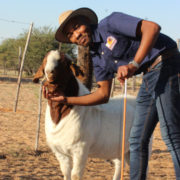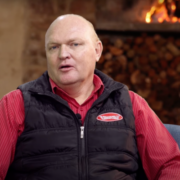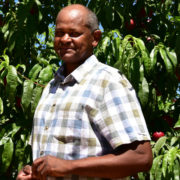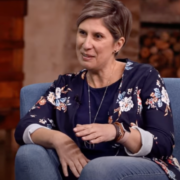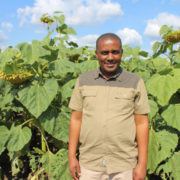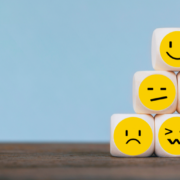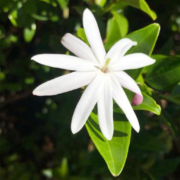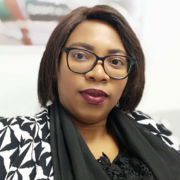by Lionesses of Africa Operations Department
“To see a World in a Grain of Sand
And a Heaven in a Wild Flower,
Hold Infinity in the palm of your hand
And Eternity in an hour…”
Having followed our own advice and taken some ‘Me Time’, re-reading a few books (‘1984’ was a bit scary even the second time around – all too real!) and turned to some new, we return this weekend refreshed and ready for whatever the world should throw at us. A book of collected poems was gifted to us some years back and recognizing that these should only be read when ready (too early would be a waste), we at last found the time and some might say, the maturity, to bathe in the beauty within.
The title this week is from one of those poems, the ‘Auguries of Innocence’ by William Blake and these opening four incredible lines drew us towards our thoughts on Entrepreneurship.
What is this beast that grabs us and refuses to let go? What is this wonder we find in a ‘Grain of Sand’ or a ‘Wild Flower’? We see such potential in small things or in our products to change the world; or even the people we employ, that others would miss, and so often enjoy the happiness delivered by something so beautiful as a wild flower as it fights through a hard rock; or perhaps a small comment or smile from a customer; or the growth in an employee in whom we took a leap of faith, where others may simply walk past, ignore or miss.
To be able to grasp something so huge as our dreams whilst others simply smile as they marvel at our nerve, or just do not understand. Our dream, our passion, held in our small hand, under our and only our control, no wonder Blake talks of ‘Infinity’ and ‘Eternity’!
Yet, how many times have we been told by those that love us and also well meaning friends and colleagues that perhaps (having worked yet another late night, or woken once more in a cold sweat or having returned yet again empty handed from the bank) we should consider a 9-5 job with comfy pension and health insurance, rather than chase the dream of entrepreneurs.
Perhaps they have a point. Marc Andreessen, cofounder of ‘a16z’ Tech PE Fund with Ben Horowitz (they are huge and highly successful – so he knows a thing or two about Start Ups and Entrepreneurs), likes to joke “…the best thing about startups is that you only ever experience two emotions: euphoria and terror. And I find that lack of sleep enhances them both.” (as seen in Ben’s brilliant book ‘The Hard Thing about Hard Things’ here).
Yet, although we appreciate that for some a 9-5 with a regular salary is important and on occasions we find ourselves dreaming of this monthly safety net, we continue to be drawn in, we are wired differently in some way. We cannot escape the pull. Try as we might we cannot turn our backs on our passion, that which gets us up in the morning and however difficult and demanding (and infuriating) this just will not leave us.
How is it that we are able to see the solution to a problem that has caused headaches for decades? Or that walking through a new district our brain is filled with answers, or products that scream out to us that are being pigeon holed in an area that simply does not make sense…
…and then to find the drive to turn these thoughts, these dreams into reality.
Of the many lines that stayed with us from ‘1984’ (Orwell used such economy of language in his absolutely perfect descriptions of people, places and events), was his definition of lunacy.
“Perhaps a lunatic was simply a minority of one. At one time it had been a sign of madness to believe that the Earth goes round the Sun…”
For many it must seem crazy that Entrepreneurs are so driven, so sure in their belief, yet for the Entrepreneur, nothing could make more sense, as much as all now know that the Earth is round and also goes around the Sun.
This ‘minority of one’ is well known to us. We can be in a room full of people, yet so alone in our thoughts. We can see the obvious, yet no one else can. This can be so lonely at times.
Yet as Orwell wrote, for his hero Winston Smith, the thought of being so alone, of being in a ‘minority of one’ “…did not greatly trouble him; the horror was that he might also be wrong.” – Bingo! And there’s the terror that Marc Andreessen spoke about!
How many times have we faltered yet carried on. How many times have we come up against a brick wall of refusal, indifference and sometimes even betrayal as those we trusted left – leaving behind that nagging fear that perhaps we are wrong and they are right? No matter how matter how many times we are pushed down, no matter how many times we are misunderstood, no matter how many times we hear this nagging doubt in our minds. What if we are wrong?
On top of which it is no good just finding the solution, having the dream – we have to put that into action! We have to actually run a company with costs, employees, warehouses and supply chains and…and… – Good grief, about time Marvel made a film about us!
Ben wrote in his book that he was always exasperated by management and self help books that for him miss the point of running a business and the huge responsibility that this in turn brings.
As he says: “Every time I read a management or self-help book, I find myself saying, “That’s fine, but that wasn’t really the hard thing about the situation.”
The hard thing isn’t setting a big, hairy, audacious goal.
The hard thing is laying people off when you miss the big goal….
The hard thing isn’t dreaming big.
The hard thing is waking up in the middle of the night in a cold sweat when the dream turns into a nightmare.”
(…the ‘Horror’). Those whose brains are not wired as an Entrepreneur will perhaps never understand.
But there is support out there, throughout all of this we recognize that those who love us are the pillar upon which we lean. They feel our pain and recognize that sometimes all they can offer is the shoulder to cry on. Those friends and colleagues are also well meaning, simply concerned and unsure of what they can do. They might not understand our drive, they might worry for our health and sleeping patterns, but they are there for us.
In addition, unlike many entrepreneurs across the globe who feel this loneliness, we are all members of a serious community in The Lionesses of Africa. Founded by Melanie back in 2014, she recognised the need for support for the millions of women in Africa building businesses ‘alone’, a place to share our stories, a platform upon which successes could be recognised whilst set-backs understood. A place that offers light from the dark terror that occasionally besets us all.
A home from home that offers in addition to this ‘safe space’, a place for training, knowledge transfer and a community has now grown into a voice of over 1.5 million African Female Entrepreneurs. From those within our ‘100 Lionesses’ driving multi million US$ businesses or inspirational Environmental and Social driven businesswomen saving the world (some serious dreams there made real) all the way to those just starting to turn their dream into reality, but all with this uncontrollable urge that drives them forward each and every day.
This community is your home from the occasional ‘horror’ that besets us all in the dark of the night as you feel the cash flow dry up, the fear that maybe your dream, the solution to the problem that is so obvious to us, yet hidden from others, is possibly wrong.
This community it there for you. Use it, write an article, tell your story, shout about your dream, your solution, your plans. Reach out to other members, the community of Lionesses – YOUR community of Lionesses, those around you, not only in your Town, Country, Continent, but also across the Globe – yes! We have a growing 6 figure membership in America and a smaller but growing (just as important) membership in the UK and a few other interesting countries in the EU such as Portugal. Search on the Lioness website for someone in your industry, find their names, then go to their website and send them a message. ‘Hi, I saw your fabulous website and article on the Lionesses site. I too am a Lioness – can we chat?”
Sometimes just chatting to someone else is all it takes for our minds to slow, for our concentration to return and then as if by magic, the power returns. The Light appears. The person we are talking to is often bemused when you thank them for their help given that all they did was just listen, but as we all know, listening is a superpower…
As a member of any community, the greatest gift you can give is to support others within that community. If you see them on social media celebrating winning or making the next stage of a business competition, reach out and celebrate with them. If you are looking for an addition to your supply chain, look to the Lionesses first to find that supplier. If you can, offer support.
Ultimately we are not alone, we are all the same, we are all Lionesses
– and all of us see..
“…a World in a Grain of Sand
And a Heaven in a Wild Flower,
Hold Infinity in the palm of [y]our hand
And Eternity in an hour…”
What a privilege!
Stay safe.

